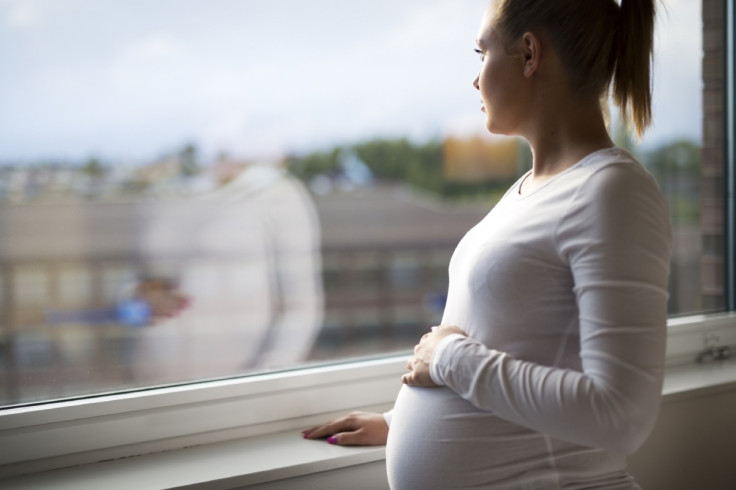Depression: Is it really risky to take antidepressants during pregnancy?
Women who take antidepressants while pregnant may worry about the potential risks to their babies.

In the last few months, a number of studies have painted a picture that is far from reassuring for pregnant women who take antidepressants. On more than one occasion, treatment with SSRIs –common anti-depression drugs – has been associated to congenital defects in the foetus. More recently, a study published in the JAMA found a link between such medication and the prevalence of autism in the children.
So should mothers-to-be stop taking anti-depressants? The evidence is not that clear cut. Though their conclusions often sound alarmist, the studies usually only reveal a small risk increase, prompting mental-health experts to stay cautious when they look at such research.
A wide range of factors
In the past decade, extensive work has been done regarding the secondary effects of antidepressants during pregnancy. Before that, studies were published but were limited, because the samples they looked at were often small and non-representative.
How do SSRIs work?
Selective serotonin reuptake inhibitors or SSRIs are a class of common, well tolerated antidepressants. Most studies who focus on the risk for the foetus look at SSRIs, paroxetine in particular.
They are prescribed to treat depression but also anxiety disorders,
There is evidence that SSRIs work by increasing serotonin levels in the brain. This neurotransmitter is associated to good mood, positive emotions and sleep.
Serotinin is usually absorbed by neurons, a process called 'reuptake' that is inhibited when a person takes a drug. This means that more serotinin is available in the brain to pass on messages and boost positive feelings.
A rise in serotinin levels can therefore have a positive effects on depression symptoms and help people to respond better to therapy.
"In the last 10 years, we have had studies involving thousands of women, and it is only in that context that we have been able to pick up a small risk increase in pregnancy outcomes for the participants who took antidepressants. Generally speaking, the risk of birth defects for women who do not take the drugs is about 3%, to which you only add another 1% risk increase if the person takes antidepressants", Ian Jones, vice-chair of the Royal College of Psychiatrist's Perinatal Faculty, told IBTimes UK.
More problematic, these studies also often ignore that women who take antidepressants may have other risk factors increasing the probability of their children developing a malformation or behavioural problems.
"We know there is a small risk increase if women take SSRIs, but we are not sure how much of this is due to the actual drugs or to other problems they might have.
"For example, they may have a poorer diet, are more likely to be obese, or to drink and take drugs. All of this can also have a negative impact on the baby to come" Jones points out. "When scientists take these factors into account in their studies, the risk of malformation associated to antidepressants seems to decrease".
"Lifesaving meds"
When a woman on antidepressants decides to become pregnant, GPs and mental health professionals usually consider it is a good opportunity to review her situation, and to discuss alternative treatment options with her.
However, charities and psychiatrists alike believe the risk of taking the drugs may be worth taking, for women who are so severely depressed that going off the medication would threaten their lives. "Clearly, continuing anti-depression treatment during pregnancy is a difficult decision to make, but in some cases, these meds are lifesavers. In some cases, taking them is the most reasonable decision to take", Jones says.
This is also the approach that leading mental health charities, like Mind, advocate. "Expecting a baby is an emotional time for anyone, but it can be particularly tough if you experience a mental health problem... the decision to take medication during pregnancy should be made on a case-by-case basis, and following a discussion you're your GP," Stephen Buckley, head of information at Mind, told IBTimes UK.
"Ultimately, you will need to balance the possible risks to your baby against any potential harm in not taking your medication, and come to your own decision about what's best for you, based on your own experience".
Improving perinatal mental healthcare
Taking antidepressants when pregnant is a tough choice, even if the probability that it may endanger the baby is low. In order for women to take appropriate decisions, receiving quality support from doctors and mental-health experts is key.
This is not always the case. According to the Maternal Mental Health Alliance, in 2015, more than half of UK's counties offer limited or no perinatal mental health services to pregnant women and to young mothers. This means that in many parts of the country, risks linked to depression during pregnancy may not be addressed adequately, nor are the risks of postpartum disorders.
© Copyright IBTimes 2025. All rights reserved.






















